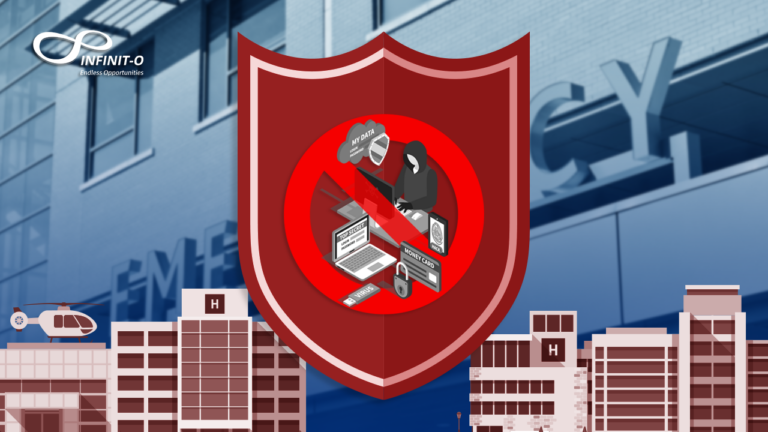Medical Coding and Billing: Overcoming Top Challenges
In the complex realm of healthcare, the challenges of medical coding and billing stand at the forefront, demanding precision, compliance, and efficiency. As the healthcare landscape continually evolves, medical practices are thrust into a world where adapting to technological advancements and regulatory changes is essential. From navigating the intricate requirements of HIPAA compliance to embracing the shifts towards value-based care, highlighting the importance of security, quality, cost management, machine learning, and analytics.
Navigating Compliance and Security in Medical Billing
The medical billing security and compliance landscape poses challenges, including outdated technology risking patient data and insufficient staff training leading to breaches. Lax regulatory enforcement further endangers healthcare organizations. Integrating EHRs demands robust cybersecurity, such as advanced encryption and continuous monitoring, to safeguard patient information against cyber threats, addressing these concerns. According to a study, hacking incidents represent 80% of reported healthcare data breaches, with the remainder 15% stemming from unauthorized access.
To navigate these complexities, healthcare organizations must adopt a comprehensive approach that includes updating their technological infrastructure to incorporate the latest cybersecurity defenses and conducting thorough training programs for staff on privacy policies and security protocols. Adopting a culture of continuous improvement and strict compliance with regulatory standards like HIPAA is essential. This dual approach ensures patient information’s integrity and confidentiality, effectively navigating the intricate compliance and security landscape in medical billing, and addressing its primary challenges.
Enhancing Quality and Efficiency Through Technology

The medical coding and billing sector faces significant challenges in maintaining accuracy, quality, and efficiency due to the complex nature of healthcare services and the ever-changing landscape of medical guidelines and payer policies. Manual processing heightens the risk of human error, undermining compliance and adversely affecting revenue. Furthermore, the growing volume of patient data and the need for precise documentation add to the complexity, making traditional methods increasingly untenable and demanding a shift towards more advanced solutions. According to a report, 44 percent of the mistakes in medical billing are due to inaccuracies and quality issues in clinical documentation.
Innovations like AI, machine learning, and data analytics are revolutionizing medical coding and medical billing by automating tasks and minimizing human error, leading to more accurate processes. AI, machine learning algorithms, libraries like Tensorflow, and PyTorch analyze large datasets to identify patterns and predict outcomes, recommending accurate codes and thereby streamlining the billing cycle. This not only boosts efficiency but also frees up resources for patient care.
The Benefits of Outsourcing Healthcare Services
Outsourcing staff in the healthcare sector brings numerous advantages, such as enhanced adaptability, economic efficiency, and exposure to specialized skills. Reports indicate that outsourcing can lead to significant financial reductions, potentially cutting down expenses by 10% to 20% when compared to the employment of full-time personnel. It also allows healthcare facilities to tap into a vast pool of qualified professionals worldwide, addressing staff deficits and elevating the quality of patient care.
Collaborating with esteemed Business Process Outsourcing (BPO) firms offers tailor-made solutions that align with the specific needs of each healthcare provider. These BPOs employ advanced technology and methodologies that ensure streamlined operations, minimized mistakes, and adherence to the highest standards of precision and regulatory compliance.
Cost reduction and expertise are not the only benefits; outsourcing also promotes stringent adherence to healthcare standards and regulations. By working with leading BPOs, which follow a robust framework encompassing People, Process, Technology, and Security, healthcare organizations can guarantee that the outsourced workforce is proficient with the latest in technology, certifications, licensing, and regulatory knowledge. This proficiency is essential for the delivery of superior patient care and includes compliance with stringent regulations like HIPAA, GDPR, ISO 27001, ISO 9000, and other pertinent local standards.
Moreover, HHM Global recognizes additional perks of outsourcing healthcare functions, including improved efficiency in operations and a sharper focus on central healthcare duties. When healthcare providers outsource ancillary services, it allows them to concentrate on their core objective of delivering top-notch patient care. Consequently, this strategic resource allocation ensures that internal staff are devoted to roles that have a direct positive influence on patient experiences and outcomes.
Adapting to Value-Based Care and Cost Management

The shift towards value-based care models represents a paradigm shift in healthcare, emphasizing patient outcomes over the volume of services provided. This transition poses unique challenges for coding in medical and medical billing, necessitating a reevaluation of how services are documented, coded, and billed. Adapting to this model requires a holistic approach that integrates quality care delivery with comprehensive documentation and billing practices.
Effective cost management strategies are integral to this adaptation process. By leveraging technology to improve documentation accuracy and streamline billing processes, healthcare providers can align their operations with the principles of value-based care. This includes sophisticated billing systems that integrate seamlessly with electronic health records (EHRs) and use data analytics to track patient outcomes, ensuring that billing practices reflect the quality of care provided.
Analytics and Optimization in Medical Coding and Billing
Adopting analytics and optimization in medical coding and medical billing improves operations through several key methods:
- Automated Error Detection: Analytics tools automatically identify and correct coding errors before submission, drastically reducing claim denials and delays.
- Revenue Cycle Analysis: By examining the entire revenue cycle, analytics can pinpoint bottlenecks and inefficiencies, allowing practices to streamline workflows and expedite payments.
- Compliance Monitoring: Continuous analytics ensures adherence to changing regulatory standards, minimizing the risk of penalties and ensuring accurate billing practices.
- Predictive Analytics: Leveraging historical data, predictive analytics can forecast trends, enabling practices to adjust strategies proactively for better financial outcomes.
- Patient Data Insights: Analytics provides a deeper understanding of patient behavior and demographics, leading to improved patient engagement strategies and satisfaction.
Future Trends in Medical Coding and Billing
The landscape of coding in medical and medical billing is undergoing significant transformation with the adoption of advanced technologies like blockchain, Computer-Assisted Coding (CAC), and the integration of Electronic Health Records (EHR) with billing systems. Blockchain is set to bolster data integrity and minimize errors through secure record-keeping, while CAC could increase coder productivity by automating and refining coding accuracy. Moreover, the collaboration between EHRs and billing software is expected to enhance documentation efficiency, facilitating precise code recommendations.
Final Thoughts
The future of coding in medical and billing lies in harnessing technology and adapting to evolving healthcare models. With AI, machine learning, and analytics, practices can enhance efficiency, compliance, and patient satisfaction. The integration of blockchain, Computer-Assisted Coding, and advanced EHR systems will further streamline processes, ensuring accuracy and speed. This approach, focused on innovation and continuous improvement, equips medical practices to tackle the challenges of security, compliance, and value-based care, positioning them for success in a rapidly changing healthcare landscape.
Infinit-O is the trusted customer-centric and sustainable leader in Business Process Optimization to Small and Medium businesses in the Financial Services, Healthcare and Technology sectors by delivering continuous improvement through technology, data and people.
Discover how our cutting-edge medical coding and billing solutions can transform your practice’s efficiency — contact us today!







This site is protected by reCAPTCHA and the Google Privacy Policy and Terms of Service apply.